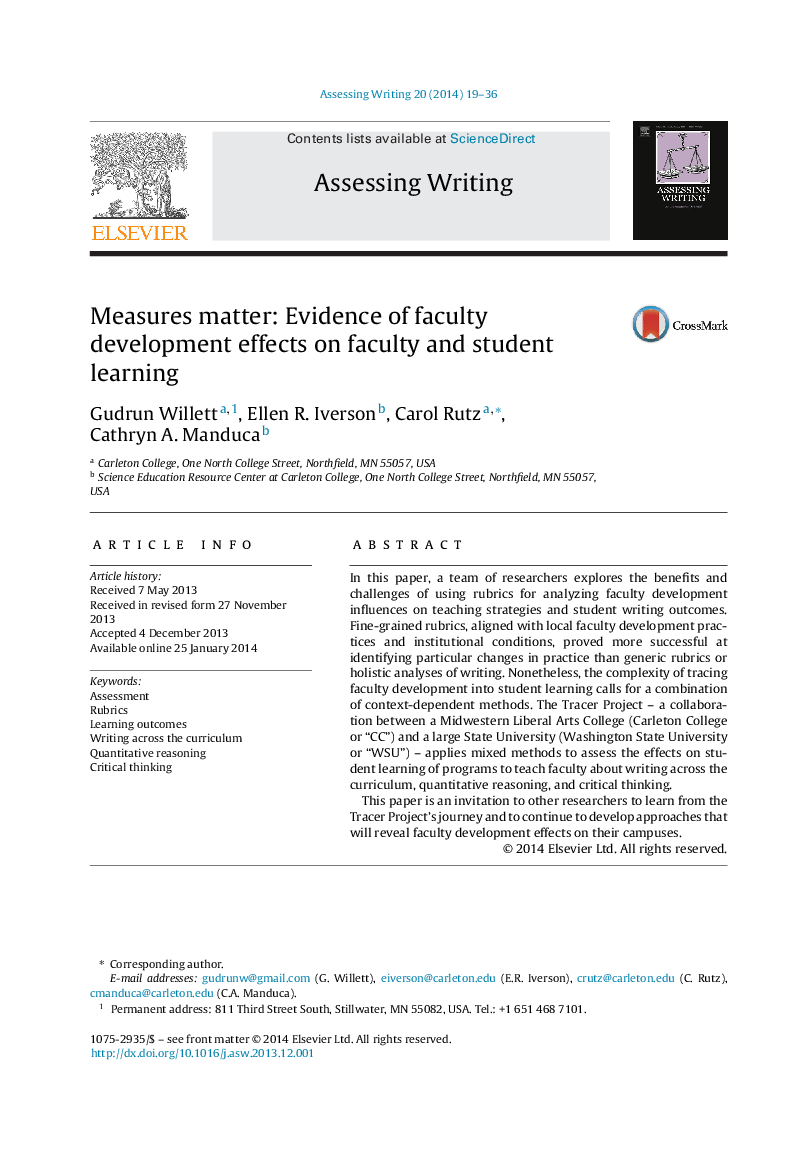| Article ID | Journal | Published Year | Pages | File Type |
|---|---|---|---|---|
| 344219 | Assessing Writing | 2014 | 18 Pages |
•Writing assessment can play a part in mixed method studies of faculty development effects.•Assessing writing that varies in genre and level offers challenges.•Criteria for assessment must be aligned to local context and faculty development goals.•Over the long haul, students benefit from institutional support for faculty learners.
In this paper, a team of researchers explores the benefits and challenges of using rubrics for analyzing faculty development influences on teaching strategies and student writing outcomes. Fine-grained rubrics, aligned with local faculty development practices and institutional conditions, proved more successful at identifying particular changes in practice than generic rubrics or holistic analyses of writing. Nonetheless, the complexity of tracing faculty development into student learning calls for a combination of context-dependent methods. The Tracer Project – a collaboration between a Midwestern Liberal Arts College (Carleton College or “CC”) and a large State University (Washington State University or “WSU”) – applies mixed methods to assess the effects on student learning of programs to teach faculty about writing across the curriculum, quantitative reasoning, and critical thinking.This paper is an invitation to other researchers to learn from the Tracer Project's journey and to continue to develop approaches that will reveal faculty development effects on their campuses.
